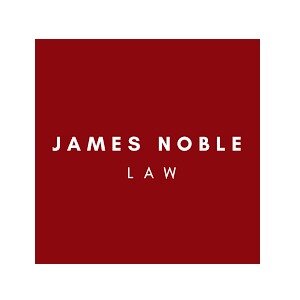Best International Trade Law Lawyers in Milton
Share your needs with us, get contacted by law firms.
Free. Takes 2 min.
List of the best lawyers in Milton, Australia
About International Trade Law in Milton, Australia
International Trade Law in Milton, Australia, is a complex field that governs the rules and regulations of trading goods and services across international borders. It encompasses a range of legal disciplines including trade agreements, customs regulations, trade disputes, tariffs, and import/export controls. In Milton, as part of Australia's broader legal system, the framework is influenced by international agreements and local legislative measures. Legal practitioners in Milton focus on both fostering compliance and addressing disputes in international trade.
Why You May Need a Lawyer
There are several scenarios where individuals and businesses in Milton may require legal assistance in International Trade Law. These include navigating the complexities of import/export compliance, understanding tariffs and duties, resolving trade disputes, negotiating international contracts, and ensuring adherence to international sanctions and trade embargoes. Additionally, participating in foreign markets often involves facing unfamiliar regulations, making expert legal guidance invaluable.
Local Laws Overview
Key aspects of local laws in Milton relevant to International Trade Law include compliance with the Customs Act 1901, which outlines the regulations for imports and exports, Australia's Free Trade Agreements (FTAs) with numerous countries, and anti-dumping measures that protect local industries from unfair pricing practices. The Australian Border Force and Department of Foreign Affairs and Trade (DFAT) are significant regulatory bodies ensuring compliance with these laws.
Frequently Asked Questions
What is an FTA, and how does it affect my business?
An FTA, or Free Trade Agreement, is a pact between two or more countries to reduce barriers to imports and exports among them. It can lower tariffs, thus reducing costs and expanding market access for your business.
How can I ensure compliance with local import/export laws?
Compliance can be ensured by keeping abreast of the latest regulations, maintaining accurate records, consulting with experts, and utilizing resources like the Department of Foreign Affairs and Trade's guidelines.
What are the penalties for violating international trade laws?
Penalties can range from fines and forfeiture of goods to loss of trading privileges and legal actions. The severity depends on the nature and extent of the violation.
How do I handle a trade dispute with a foreign company?
Resolving such disputes often involves negotiation, arbitration, or legal proceedings. Engaging an experienced international trade lawyer can facilitate an effective resolution.
What role does the Australian Border Force play in trade law?
The Australian Border Force is responsible for customs control, enforcing trade regulations, border protection, and revenue collection on imported goods.
How can trade sanctions affect my international operations?
Trade sanctions can restrict or prohibit transactions with specified countries or entities, impacting contracts, payment processes, and supply chain dynamics.
Do Australian trade laws apply to digital products?
Yes, digital products are subject to trade laws, particularly those concerning digital service tariffs, data flow regulations, and intellectual property protection.
Can I get a government grant to aid my export business?
Yes, various programs exist to support exporters, such as the Export Market Development Grants (EMDG) program, which assists in market promotion activities.
How do I classify goods for tariff purposes?
Goods are classified under the Harmonized System (HS) Code, which determines the applicable tariff. Proper classification can be complex and often requires expert advice.
What should I know about foreign investment regulations?
Foreign investments are regulated to balance economic benefits with national interests. Understanding the Foreign Investment Review Board (FIRB) guidelines is essential for compliance.
Additional Resources
Several resources can be beneficial for those seeking legal advice in International Trade Law:
- Department of Foreign Affairs and Trade (DFAT): Offers comprehensive information on trade agreements and sanctions.
- Australian Border Force: Provides customs information and trade regulations.
- Australian Trade and Investment Commission (Austrade): Supports international business ventures.
- World Trade Organization (WTO): Houses resources on global trade rules and policies.
Next Steps
If you require legal assistance in International Trade Law, consider the following steps:
- Identify the specific areas where you need guidance - be it compliance, contract negotiation, or dispute resolution.
- Research and choose a qualified legal professional with expertise in International Trade Law in Milton. Consultations can be valuable for assessing their suitability for your needs.
- Prepare all relevant documentation and information to facilitate a more effective legal consultation.
- Engage with professional networks and local business chambers that focus on international business to gather recommendations and insights.
Lawzana helps you find the best lawyers and law firms in Milton through a curated and pre-screened list of qualified legal professionals. Our platform offers rankings and detailed profiles of attorneys and law firms, allowing you to compare based on practice areas, including International Trade Law, experience, and client feedback.
Each profile includes a description of the firm's areas of practice, client reviews, team members and partners, year of establishment, spoken languages, office locations, contact information, social media presence, and any published articles or resources. Most firms on our platform speak English and are experienced in both local and international legal matters.
Get a quote from top-rated law firms in Milton, Australia — quickly, securely, and without unnecessary hassle.
Disclaimer:
The information provided on this page is for general informational purposes only and does not constitute legal advice. While we strive to ensure the accuracy and relevance of the content, legal information may change over time, and interpretations of the law can vary. You should always consult with a qualified legal professional for advice specific to your situation.
We disclaim all liability for actions taken or not taken based on the content of this page. If you believe any information is incorrect or outdated, please contact us, and we will review and update it where appropriate.








